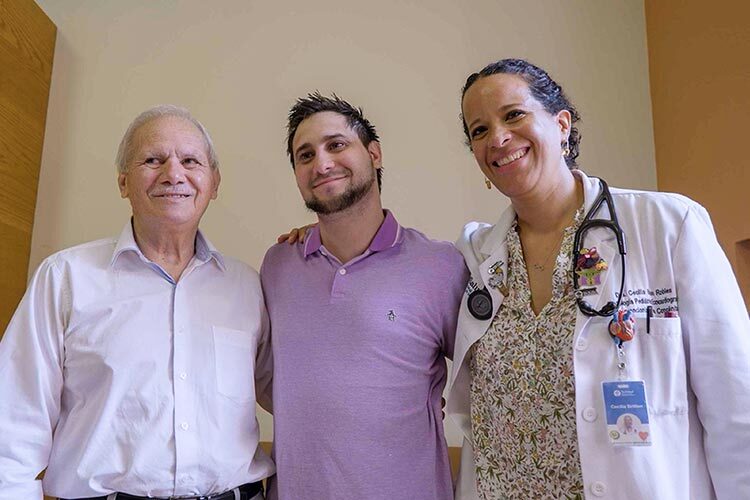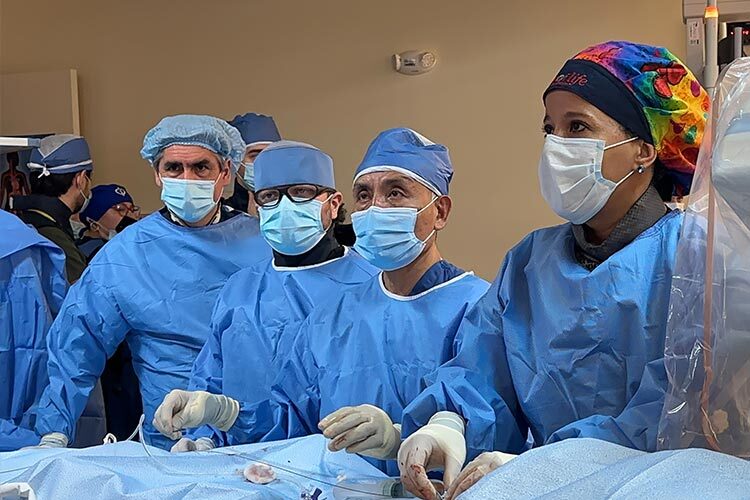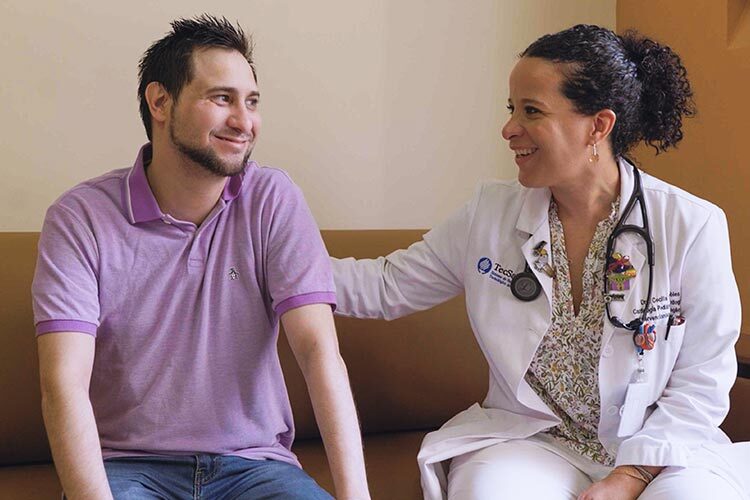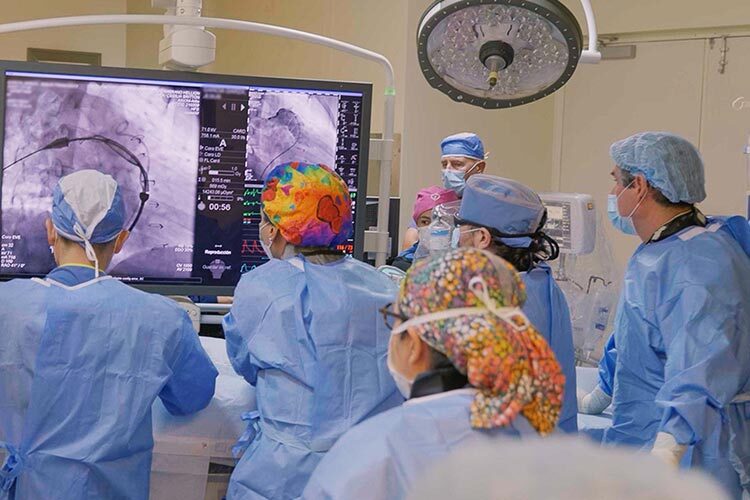Jesús Francisco García was born with a congenital heart defect known as Tetralogy of Fallot. At just five years old, he underwent open-heart surgery at Texas Children’s Hospital to correct the condition.
Tetralogy of Fallot is the most common form of cyanotic congenital heart disease and one of the first to be successfully repaired by congenital heart surgeons. It is often diagnosed shortly after birth when a baby’s skin appears bluish or gray. A heart murmur is typically present, which sounds like a whooshing noise when listened to with a stethoscope.
“After his surgery, he led a normal, quiet life, with plenty of rest, and could continue his studies,” his father recalls.
Now 35 years old, Jesús Francisco’s situation changed dramatically six years ago. He started frequenting emergency rooms due to a sensation of impending doom and panic attacks. This led him to seek help from Cecilia Britton at TecSalud.
Britton and her team of interventional cardiologists performed a groundbreaking procedure, implanting a self-expanding Venus P-Valve in Jesús Francisco. This marked the first time such a procedure was done in Mexico.

Mexico’s First Self-Expanding Heart Valve Implant
Britton explains that patients who undergo surgery for Tetralogy of Fallot can later develop pulmonary insufficiency, making it crucial to identify the optimal time to place a valve.
Before the surgery, Jesús Francisco felt nervous and uncertain. “As I researched more and gathered information, I started feeling better about deciding to go through with it,” he says.
The Venus P-Valve treats pulmonary insufficiency by preventing blood from flowing back into the heart from the lungs.
“We hadn’t had the opportunity to access these valves in our country, but now it’s a reality,” says Britton, a specialist in congenital heart diseases.
After the Federal Commission for Protection against Health Risks (Cofepris, in Spanish) approved its use in Mexico, the valve was successfully implanted in Jesús Francisco at Zambrano Hellion Hospital.
“This is a significant milestone for TecSalud and a chance for patients suffering from these conditions to receive innovative treatments,” Britton explains.

The Four Defects of Tetralogy of Fallot
According to Britton, Tetralogy of Fallot involves four heart defects that cause cardiac issues:
- Ventricular septal defect
- Obstruction of the right ventricular outflow tract
- Right ventricular hypertrophy
- Overriding aorta
(Information from TecSalud and CONECTA)

Interested in this story? Want to publish it? Contact our content editor for more details at marianaleonm@tec.mx















